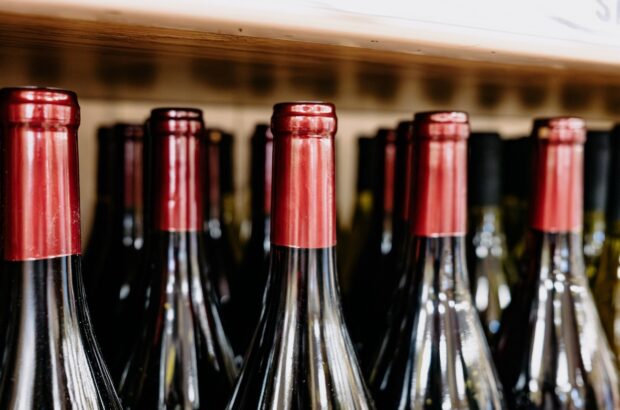2023 harvest: ‘The motivated endure’
The 2023 Ukrainian wine harvest reflects winemakers’ resolve. Amid the ongoing conflict, vintners display remarkable resilience; diligently tending vineyards, producing wines and exporting their products worldwide. Despite unique challenges, winemakers remain optimistic.

Credit: Wines of Ukraine
According to the Wines of Ukraine website: ‘Six wine regions have been officially approved in Ukraine. This is an outdated norm in our legislation, which has been in effect since Soviet times and does not correspond to today’s realities. The Association of Craft Winemakers of Ukraine [aka Wines of Ukraine] is actively working to expand the winemaking area to most of Ukraine. A large number of new wineries that have appeared in the last 5 years are located in cool climates.’
Svitlana Tsybak, CEO of Beykush Winery, reflected on a challenging 18 months, ‘Beykush is a family-owned winery that spans just 13 hectares, it’s located two kilometres from the occupied area. When full-scale war erupted last year, we faced uncertainty about our winemaking prospects. In July, we decided to bottle wines initially prepared before the war’s outbreak. We also dedicated ourselves to caring for the vineyards. Last September yielded high-quality grapes due to dry, hot weather, with no issues in the vineyard. This year could be a mixed bag – I hear reports of unfavourable weather conditions from Zakarpattia (near the Hungarian border). However, due to last year’s success, we expect to increase our production by 20% this year, thanks to two additional hectares maturing, despite the rockets above us.’
Tania Olevska, owner of Friends Wine Travel, added, ‘Winemakers had no alternative but to continue nurturing vineyards and pursuing their craft. Emotionally, it’s crucial to stay engaged during wartime; otherwise, despair takes hold. Thus, despite the conflict, we enjoyed a bountiful harvest last year. This year is looking promising too.’
Kolonist Winery, founded by the Plachkov family in Bessarabia, exemplifies resilience and growth. Initially producing 30,000 bottles annually, it has expanded to 350,000 bottles, with 63ha of vineyards. The portfolio features classic aged whites and reds, semi-dry, sweet and sparkling styles. Its specialities, Odesa black and Sukholymanske white, highlight Ukraine’s indigenous array. Even during the conflict’s early stages, when alcohol sales faced restrictions and night-time lights were banned, the winery persisted. It opened its doors to families from occupied regions and provided humanitarian aid. Hryhoriy Plachkov, co-owner of the winery, presently serves as a military officer.
Former tennis star Sergiy Stakhovsky, who now fights on the frontline against Russian, is the owner of Stakhovsky Wines in the Zakarpattia region. He spoke with decanter.com as he landed back in Kyiv safely, reflecting on the last two vintages, ‘We have 22.5 hectares of vines, producing 10,000 cases yearly. The 2022 vintage was very powerful and charismatic, but missile attacks left us without power for 2 weeks. The 2023 harvest faced weather instability, in our region, but we won’t fully know the results as we are just preparing for harvest starting the last week of September. Overall, the Russian invasion devastated wineries, making it difficult for the wineries to survive, but motivated vine growers and winemakers endure.’

Kolonist Winery. Credit: Kolonist Winery
Status quo: An overview of Ukrainian winemaking
The success stories highlighted above should not mask the devastating effect the conflict has had on some regional wine production. Many occupied regions have suffered significant impacts, leading to the loss of wineries in Kherson and other areas, producers said.
Tsybak, who is also c0-founder of Wines of Ukraine, a pivotal organisation championing domestic producers born out of the collaborative spirit when the conflict started, anticipated it would take at least a decade to revive some regions’ wine production. Overall, Ukraine has retained around 100 wineries (down from 180 before the war started), with the majority remaining operational.
One other challenge confronting Ukrainian winemakers was the complexity of legislation and bureaucracy. Over the last two decades, Ukraine’s wine industry has undergone a remarkable resurgence. Between 2016 and 2018 substantial legislative improvements were made to support small wine producers.
Tsybak highlighted the progress made: ‘Since 2018, we have been working on simplifying legislation, such as removing the need for an excise stamp on bottles.’
In 2021, a significant milestone was achieved with the removal of the still wine excise mark. More recently, law 9030 introduced key provisions such as streamlined licensing, the removal of administrative penalties, simplified reporting, support for winemakers and a provision for minor producers to purchase grapes for a much-reduced licence fee.
According to Stakhovsky, ‘The Ukrainian wine industry was looking on the uprise since 2016 when a new law was signed by the President giving small “craft” winemakers the right to produce wine from own-grown vines without paying roughly £16,000 on license fees.’
These legislative amendments have fostered the growth of boutique wineries in the country, he explained.
Paving the path forward

Svitlana Tsybak. Credit: Wines of Ukraine
The worldwide wine community has rallied in support of Ukrainian winemakers since the outbreak of the war.
‘Recent years have seen many nations reassess their views on Ukraine. They now understand Ukraine’s true essence. Importers have expressed their desire to import our wines, resulting in repeat orders. Ukrainian wines have found new markets, and international markets have discovered Ukrainian wine. For instance, our Estonian partners started with just a single pallet, wanting to help out, and today their orders have increased to 5-6 pallets per month,’ Tsybak said.
She added that Ukraine’s wine industry is working tirelessly to expand its reach and enhance its presence on the global stage, introducing the Ukrainian terroir to global audiences.
While Ukrainian winemakers navigate the challenges of conflict, they are simultaneously preparing for a promising future. Despite uncertainties, 2024 plans are infused with optimism.
Kostiantyn Tintulov, commercial director of TM Villa Tinta, shared his vision, ‘In 2024, we plan to increase exports and domestic sales, explore new markets, launch new wines, and contribute to our country’s restoration.’

Credit: Wines of Ukraine
Vladimir Palariev, co-owner and winemaker at Frumushika-Nova was also optimistic when speaking to decanter.com, ‘In 2024, we plan to introduce a unique line of wines featuring indigenous grape varieties. We hope for robust sales in the UK and EU.’
The resilience and creativity exhibited by Ukrainian winemakers during these challenging times point to a bright future for the nation’s wine industry. Wines of Ukraine will present 13 wineries to UK trade on the 9th of October at 67 Pall Mall in London and plans to participate in Prowein and the London Wine Fair, building on its successes from the previous year’s participation in these prominent international fairs.







